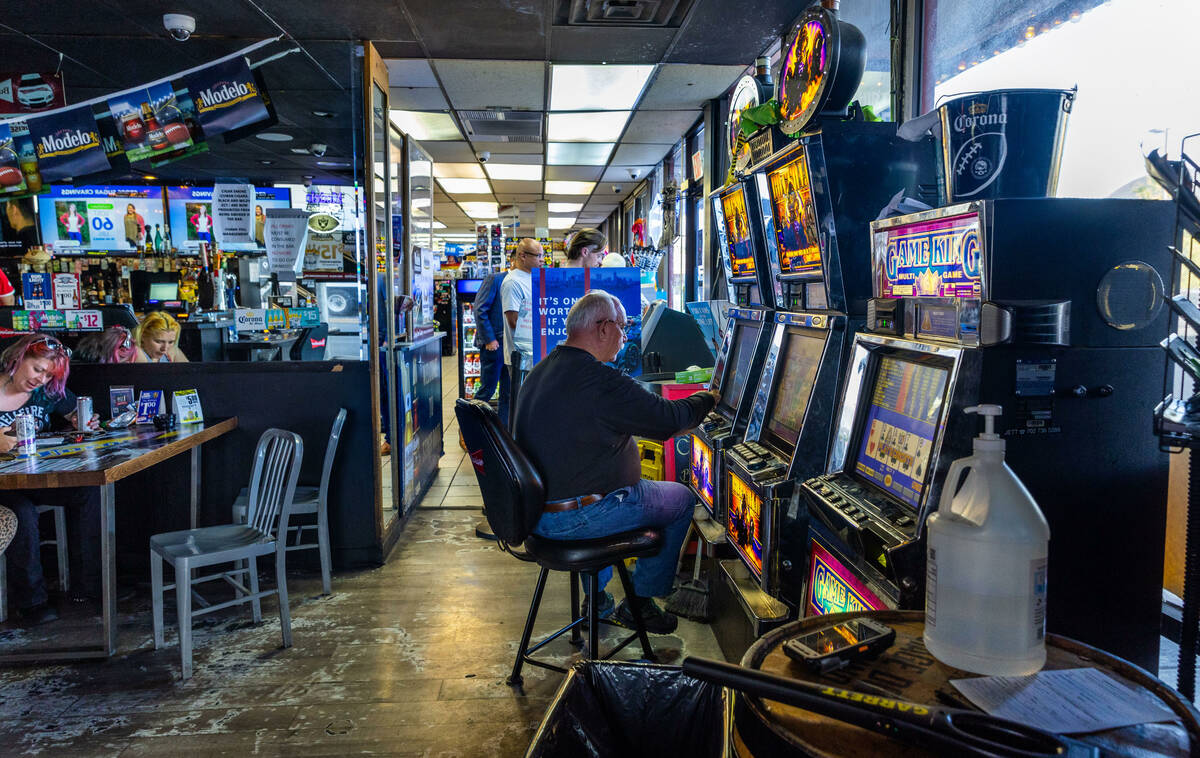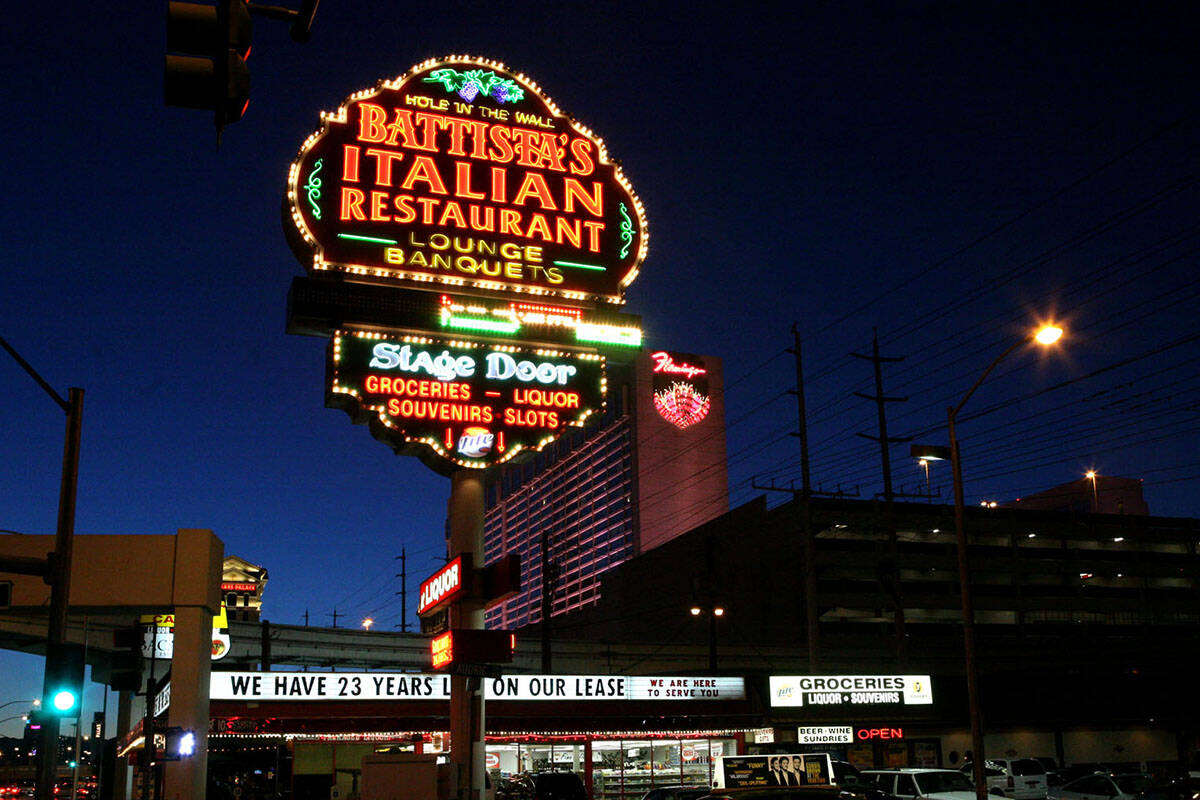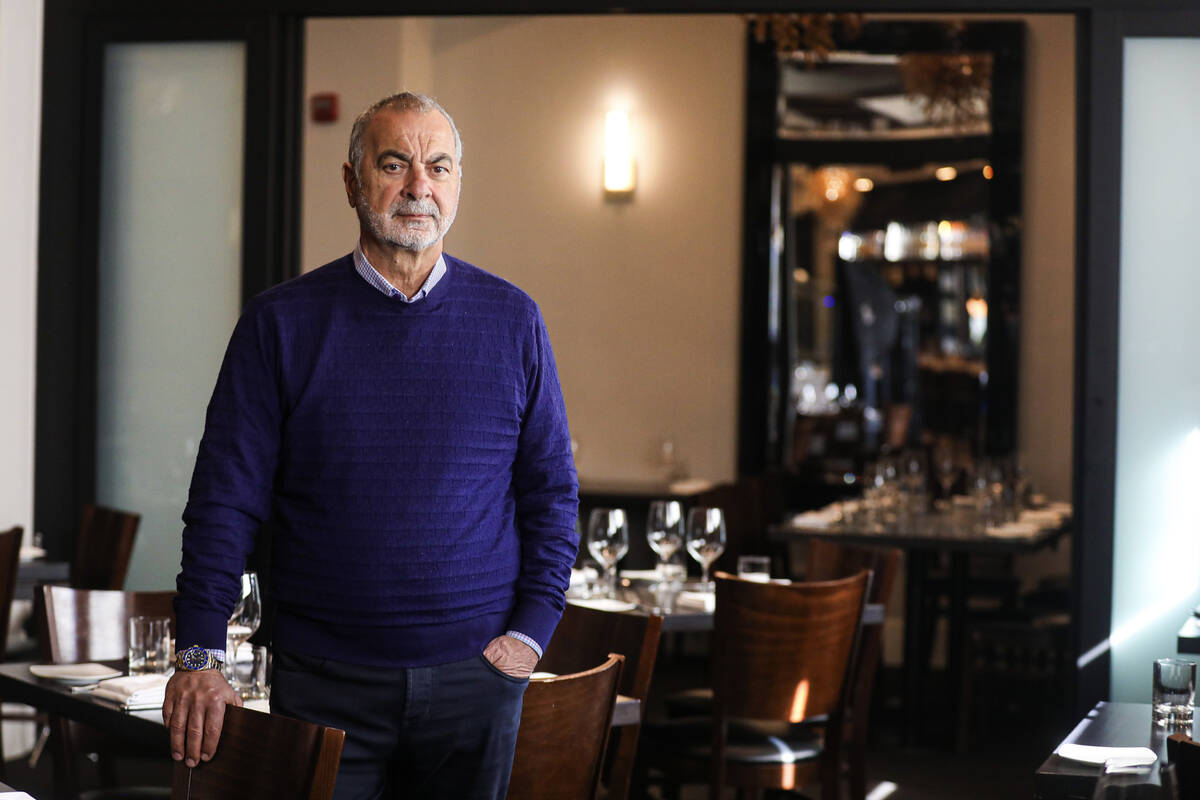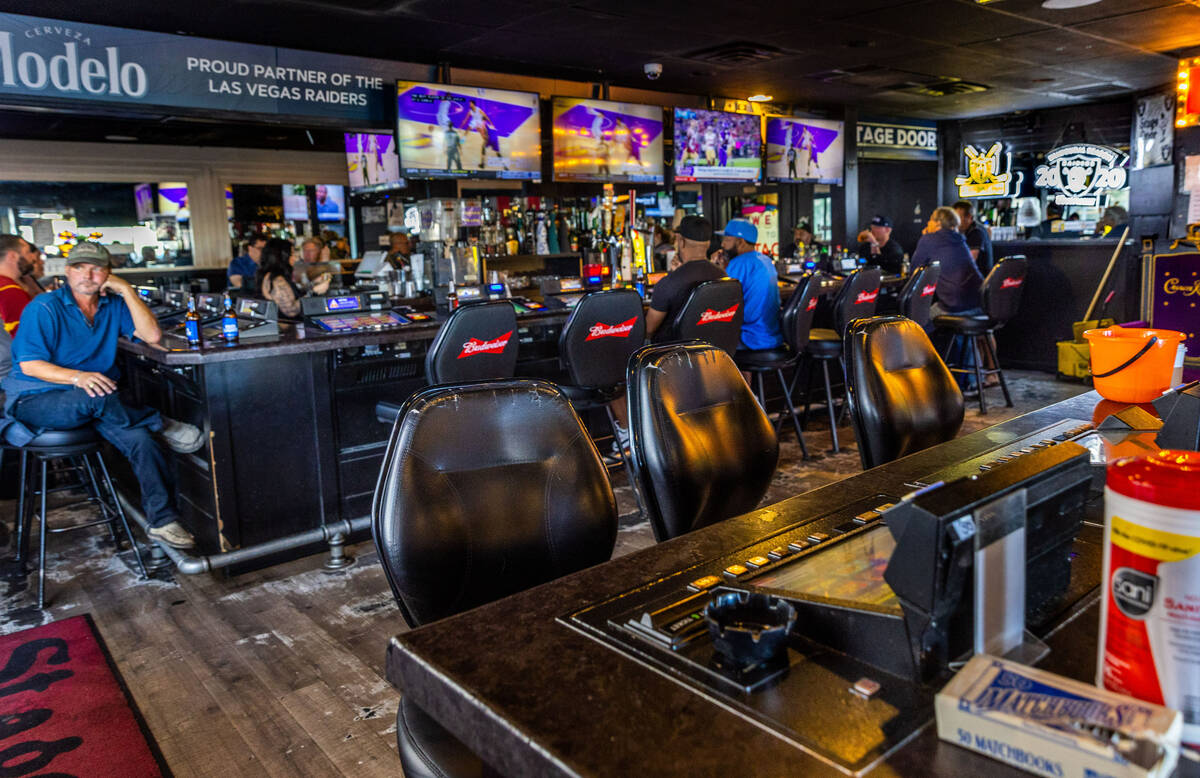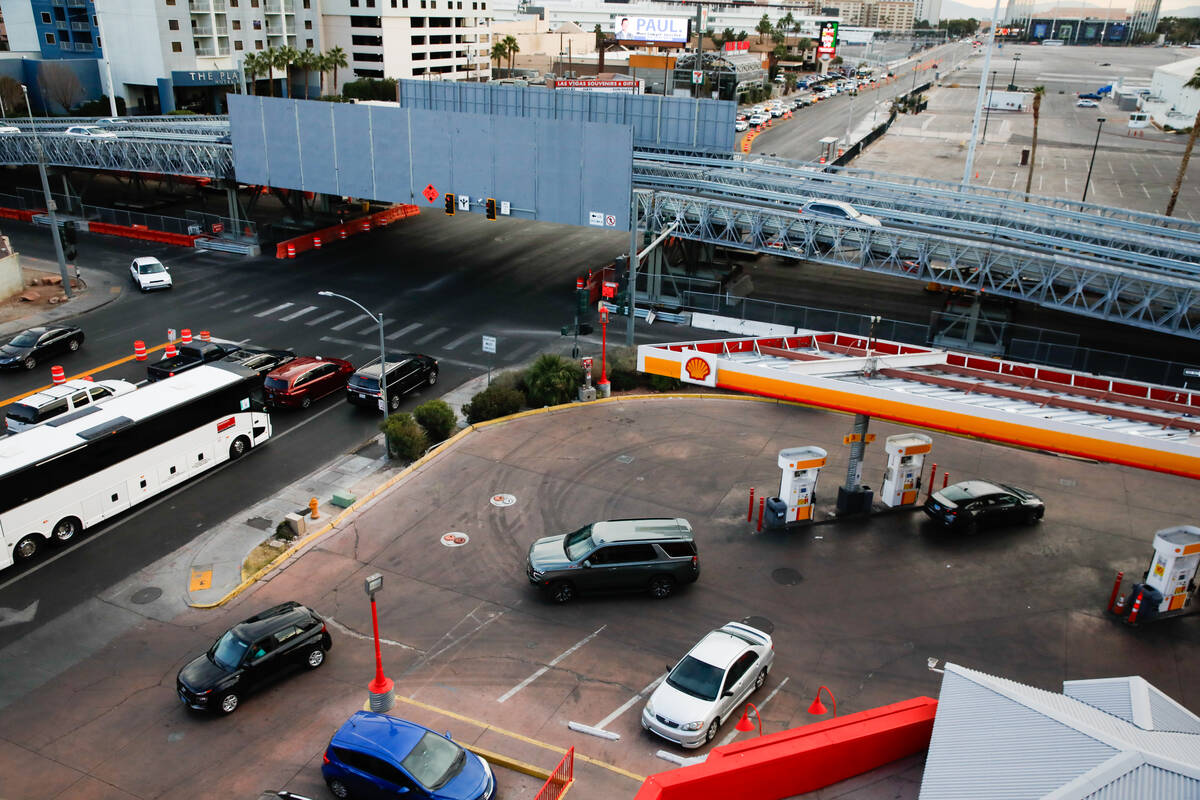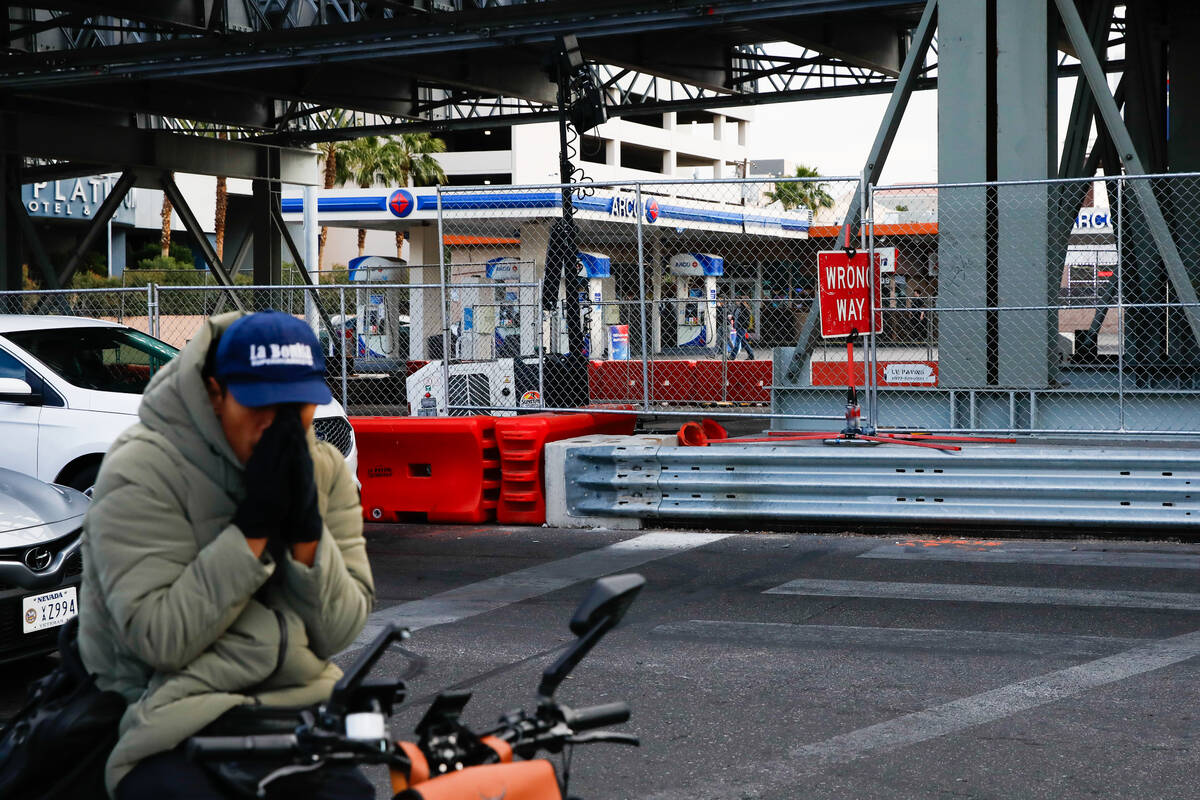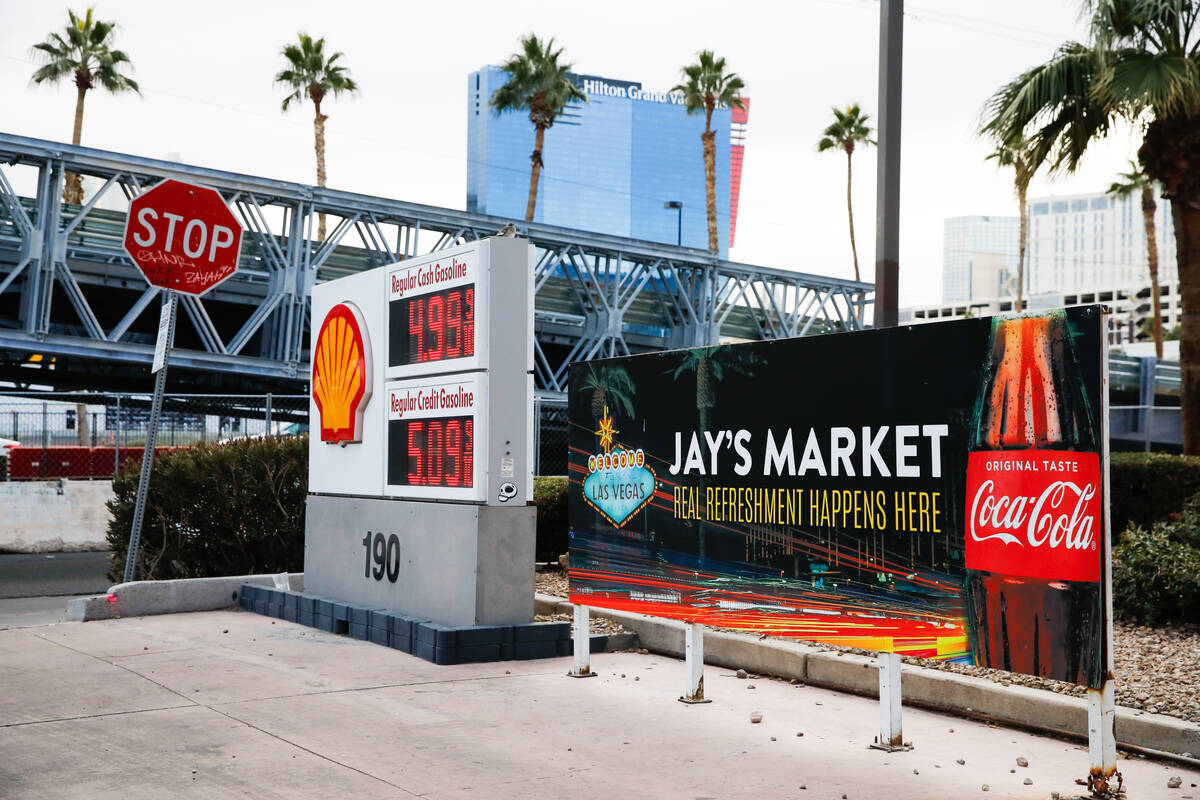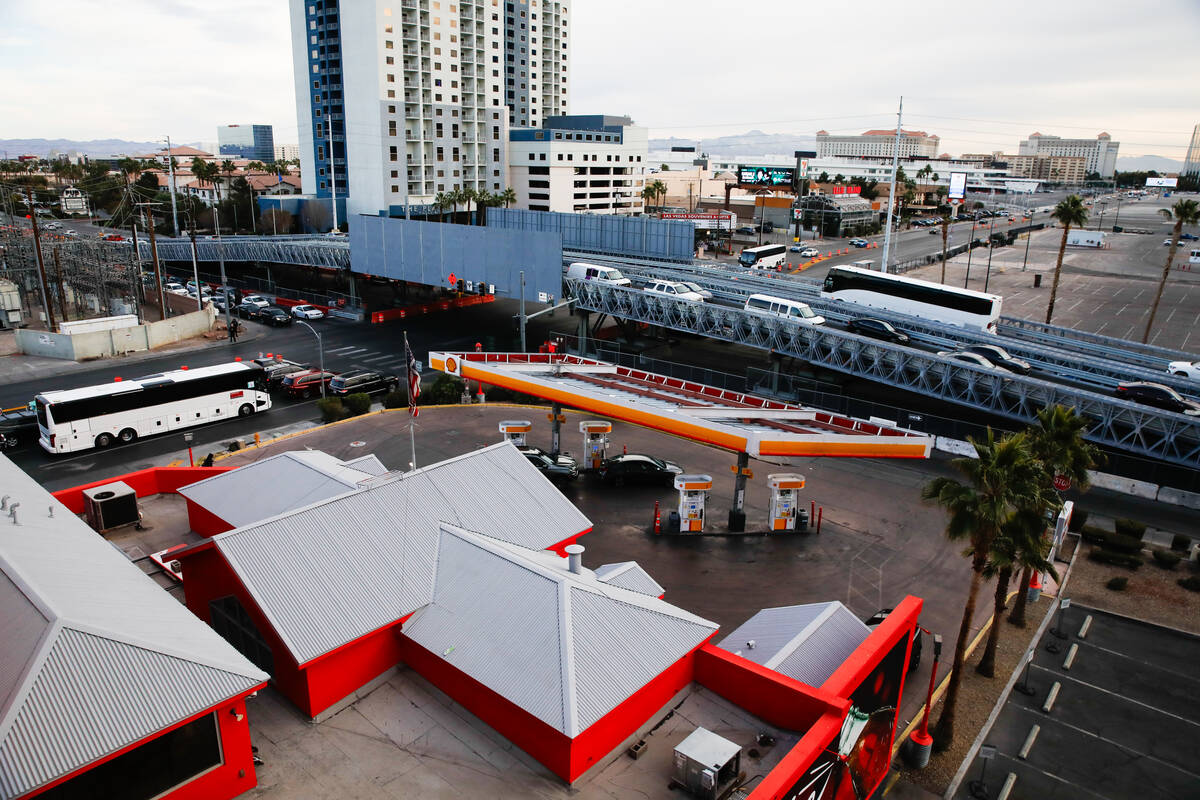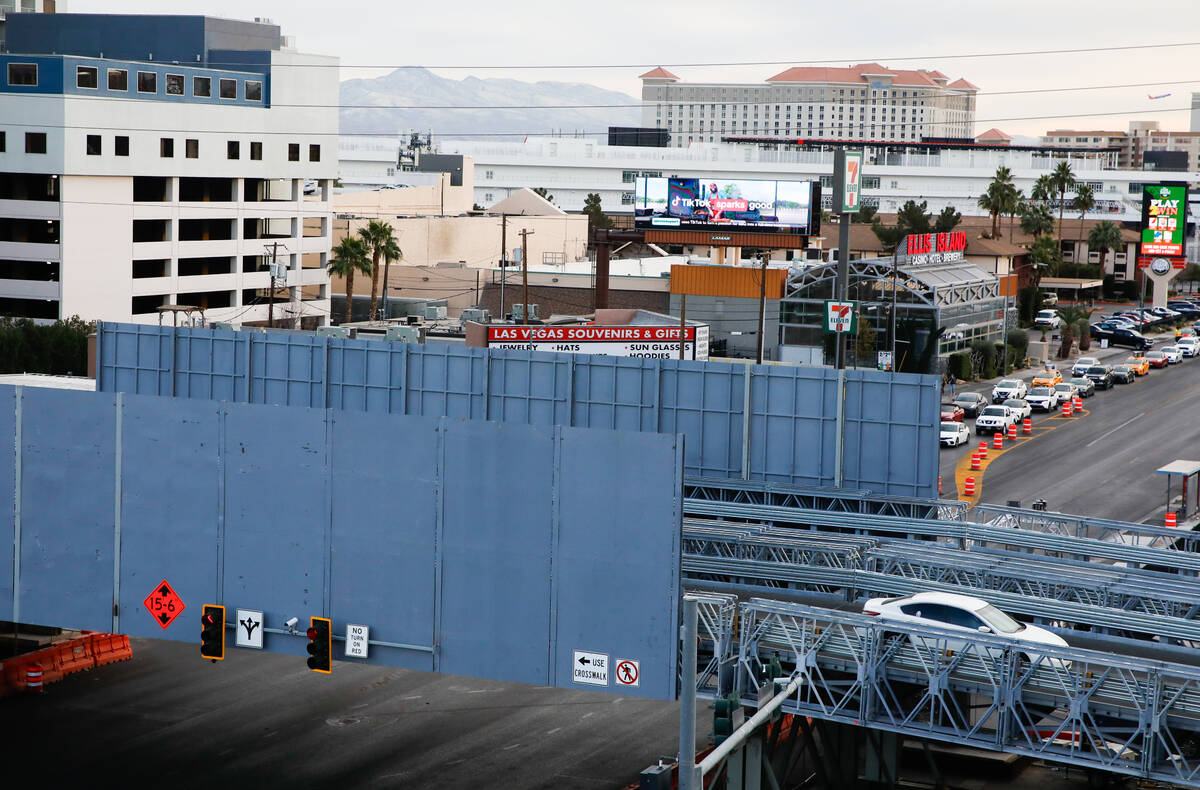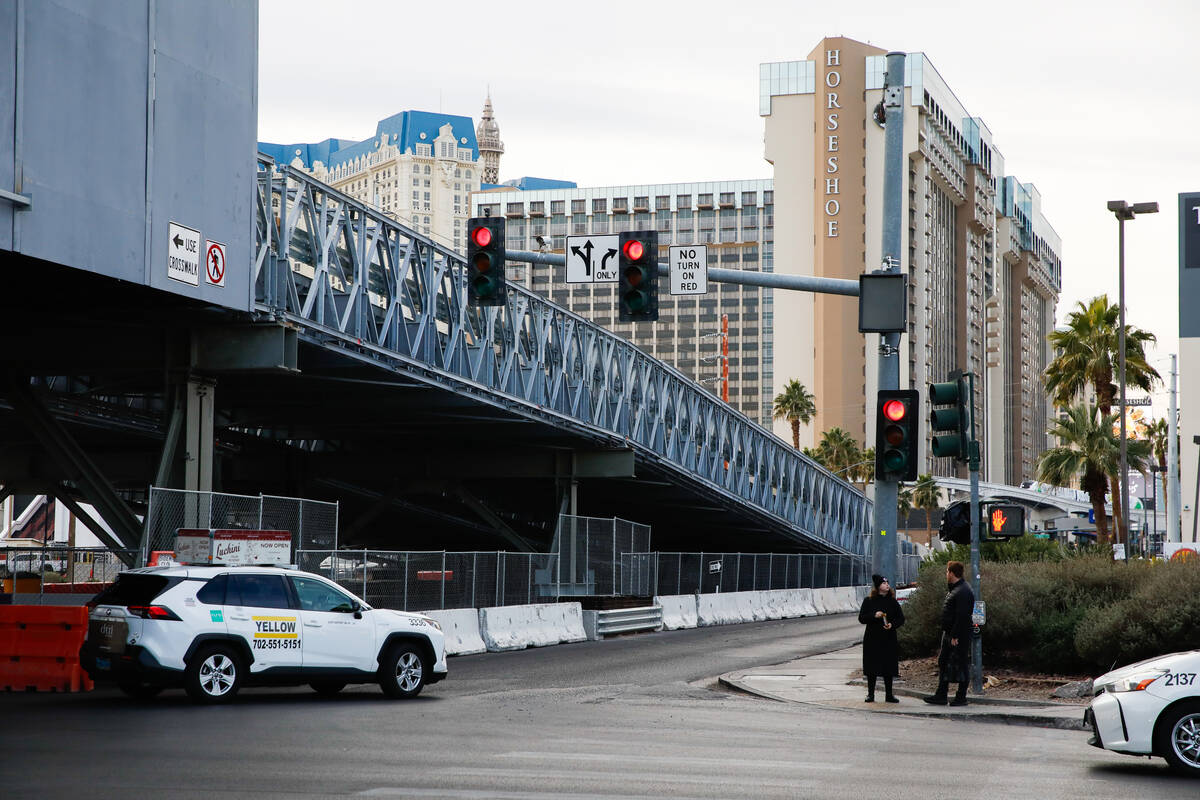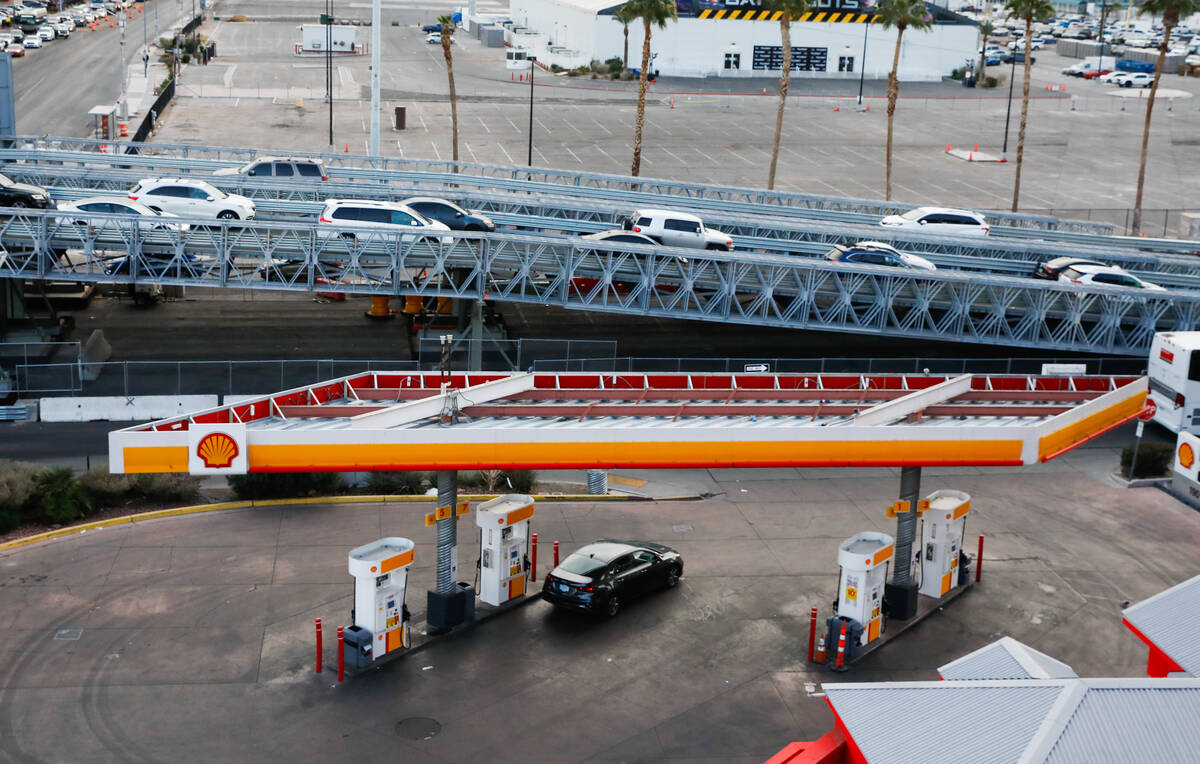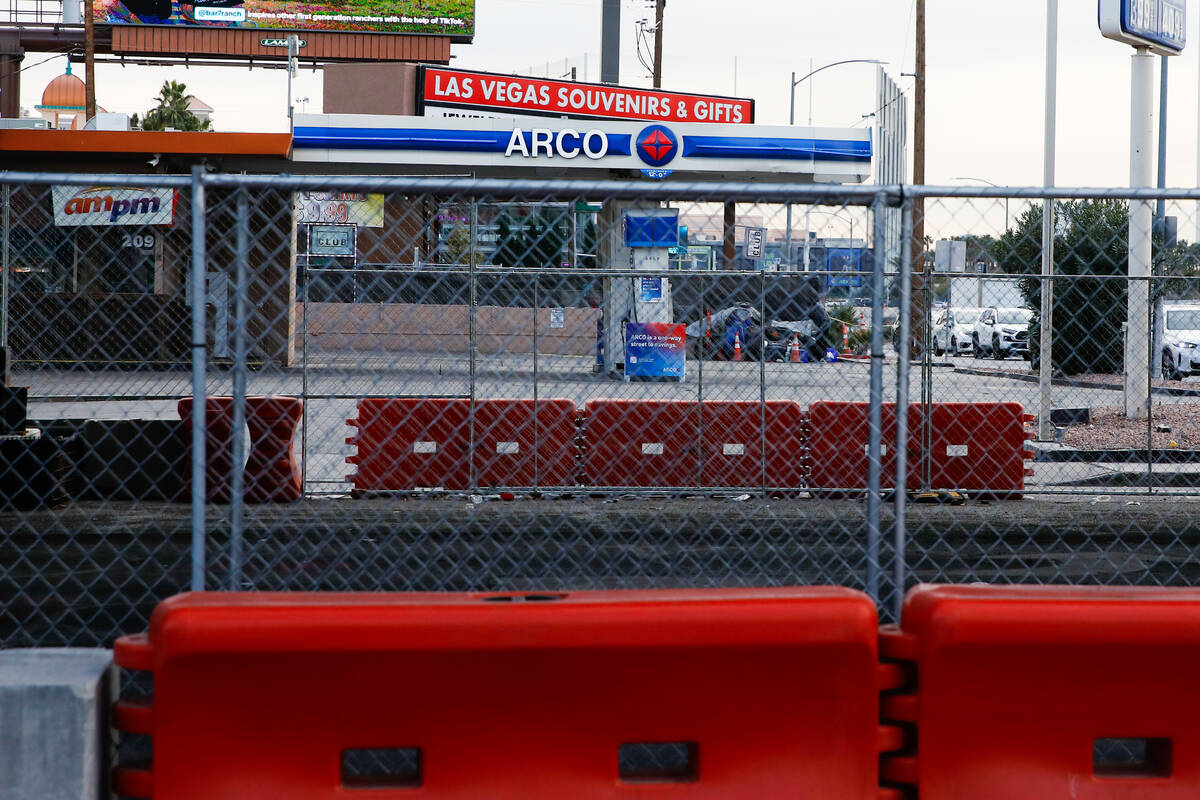‘Locals still won’t come to this area’: Some businesses still losing revenue after F1
Gino Ferraro’s restaurant will soon be open for lunch — a meal that Ferraro’s Ristorante has not regularly served before. The upscale Italian restaurant on Paradise Road is trying to bring in more revenue after months of dwindling sales — a consequence that Ferraro attributes directly to months of road construction for the Formula One Grand Prix.
“We pay a ton of money in rent to be in the tourist corridor, and they deprive us (of) doing business from the Strip,” Ferraro said.
About a dozen businesses near the resort corridor and along the Grand Prix circuit are pressuring county and race leaders to address the continued negative impact that the race’s construction had on their revenue and operations.
Ferraro and others are bringing their concerns to Clark County, F1 and Las Vegas Convention and Visitors Authority leadership in an effort to be made whole for the revenue lost — which they say is in the millions.
Still hard hit
Businesses near the Koval Lane and Flamingo Road intersection are particularly aggrieved at the temporary bridge. The structure was built in October and was expected to come down after the inaugural Grand Prix held Nov. 16-18. Yet, community leaders began considering a permanent overpass that same week. It’s still standing as the county studies the traffic flow.
Clark County officials declined to comment on the issue Thursday, citing “the threat of pending litigation.”
But business leaders dispute that. Lisa Mayo-DeRiso, who is championing a response for nine businesses in the Flamingo Road-Koval Lane-Harmon Avenue area, said they want to avoid a lawsuit. She said she thought the county’s response was a way to not tell the public about its future infrastructure plans there.
Mayo-DeRiso told the LVCVA during a public meeting Tuesday that those businesses lost an estimated $23 million because of road closures and blocked entrances to their businesses from late spring through November.
Business operators are concerned about how much longer the temporary bridge could be there. Wade Bohn, owner of Jay’s Market and the Shell gas station at that intersection, estimates he’s down about $4 million in revenue and attributes that to the loss of accessibility.
“That bridge alone is the killer,” Bohn said, who laid off five employees in the fall because of slow sales. “It took them 11 days to build it, and it’s still there — it’s January. It’s not leaving. If they start taking it down in February, I’ll be shocked. I don’t understand why it’s still there.”
Others in the area say the bridge isn’t the only impact. At Ferraro’s Ristorante, the week of the SEMA trade show in the fall is normally one of their best, bringing in roughly $60,000 in sales a night. But this year’s was a 50 percent decline, Ferraro said.
Discussing possible solutions
Bohn said he’s hoping to be made whole through a relief fund for qualifying businesses or something similar.
“We want to be compensated monetarily and at the same time, we want to avoid the next nine years of this,” Bohn said. “They have to come up with — they have to — a solution.”
Randy Markin, owner of Stage Door Casino and Battista’s Hole in the Wall restaurant on Flamingo Road, said he and his peers want some accountability for the impact and funds that could trickle down to their employees. Markin said Battista’s lost about 100 reservations a night from would-be customers who couldn’t reach the restaurant. The small casino operation made up of slot machines relied heavily on locals’ business and still hasn’t seen a return to normal revenue. One of two bars in the property has been closed for months.
“The locals — for eight, nine months, they went to different places,” Markin said. “The bar still has not come back because locals still won’t come to this area.”
Markin said race and government officials could start by publicly acknowledging “that things went sideways” and specify how they plan to rectify it.
“None of us want to sue,” he said. “We don’t like that avenue.”
Race leaders have begun to do some of that. In November, Greg Maffei, CEO of F1’s parent company Liberty Media, apologized for the construction’s disruption to the resort corridor.
Since then, regional officials have been in communication with affected businesses to listen to their concerns. Several business owners told the Review-Journal they had meetings scheduled with the LVCVA, county and race officials, but no solution has been set.
In a statement Thursday, LVCVA President and CEO Steve Hill said the race “exceeded our expectations” as an economic and international attention boosting event for the city but confirmed the authority has been meeting with business owners about their concerns.
“We do recognize some were disproportionately impacted by the construction required to put on an event of this magnitude,” Hill said in the statement. “We learned a lot going through the first year, and we have started discussion with businesses near the Flamingo-Koval intersection to understand their concerns. We will continue to work with them to find potential solutions and create opportunities so that future races are better for all involved.”
McKenna Ross is a corps member with Report for America, a national service program that places journalists into local newsrooms. Contact her at mross@reviewjournal.com. Follow @mckenna_ross_ on X.



